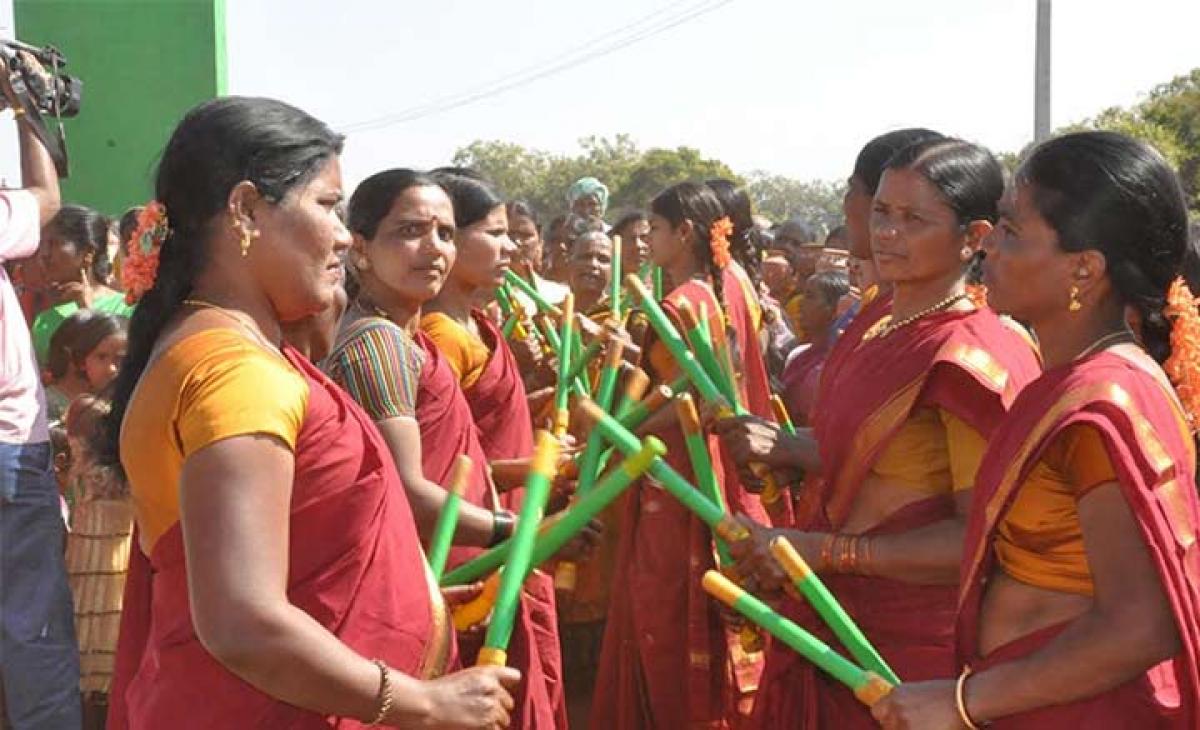Live
- Cong-AAP 'alliance' will not make any difference
- Don’t rely too much on PAs, Gutha cautions lawmakers
- Facial Recognition Tech leads to arrest of impostor
- Voter 'deletion' issue : Kejriwal-led AAP delegation meets EC
- KTR is daydreaming, flays Sridhar Babu
- Red roses given to BJP counterparts
- Dhankhar a govt spokesperson, biggest RS disruptor: Kharge
- Fire breaks out at petrol pump
- Facial recognition-based attendance in Sectt from today
- TGPSC to be restructured on par with UPSC
Just In

Institute of Millet Research (IIMR) Director TG Nageshwara Rao has announced a series of steps being taken up by the institute to promote millet farming among the people of Telangana and Andhra Pradesh.
Jharasangam (Medak): Institute of Millet Research (IIMR) Director TG Nageshwara Rao has announced a series of steps being taken up by the institute to promote millet farming among the people of Telangana and Andhra Pradesh. He was the chief guest at the 17th mobile biodiversity festival being organised by Deccan Development Society (DDS) at Jharasangam mandal on Thursday.
Speaking on the occasion, Nageshwara Rao said that the institute had released 30 hybrid and 30 improved varieties of millet seeds into the market. He felt that Jowar was not getting into the market as desired because of low demand and lack of awareness among the public. He said that the institute has come up with Jowari roti-making machines keeping in mind the difficulty people may face in preparing them as it can be time consuming.
The institute has prepared 20 food items from Jowar and certain ready-to-eat foods using Jonna, Raagi and Sajja like Vermicelli, biscuits, pasta, puffs and heat exuded products using Jowar. Calling upon the millet farmers of DDS to not only produce millets but also learn to make these food preparations and market them, he announced that IIMR was also offering free training to the farmers every month so that they could become more self-sufficient, earning higher profit margin for their products.
Elaborating on what more could be done using millets, he said that by using sweet sorghum varieties, jaggery and bio-ethanol could also be produced using Jowar, which according to him was a better alternative to sugarcane farming, as it takes only 3- 4 months to get the crop, whereas sugarcane takes more than a year to grow. He said Jowar could be used as fodder for cattle and that it could increase the milk output by 5-10 per cent.
He added that the institute has also come up with ‘Attracting rural Youth for Agriculture’ (ARYA) programme and introducing Reapers and Millet Processing Mills on community basis. He disclosed that tribal sub-plan funds and front-line demonstrations (giving seeds and economic support through bank loans) were also being facilitated by the institute.
Rukmini, founding member of DDS requested Nageshwara Rao to consider IIMR training certificates given to the farmers after the completion of training as consideration for giving bank loans instead of property pass books which are usually sought by the banks while giving loans. She said that usually the property would be in the name of the husbands, due to which the women farmers were being devoid of financial assistance. Seeking bankers’ help, she hoped women going in groups for loans could be given loans in a liberal manner.
Pointing out the huge discrepancy in the farmers’ sex ratio (only 13 female farmers per 100 male farmers), she hoped that the government should recognise women farmers as farmers as well, who should be extended all kinds of support by the government. Deccan Development Society (DDS) Director P Satish, Director, DDS, expressed hope that Nageshwara Rao would act as a link between the farmers and the government.

© 2024 Hyderabad Media House Limited/The Hans India. All rights reserved. Powered by hocalwire.com







